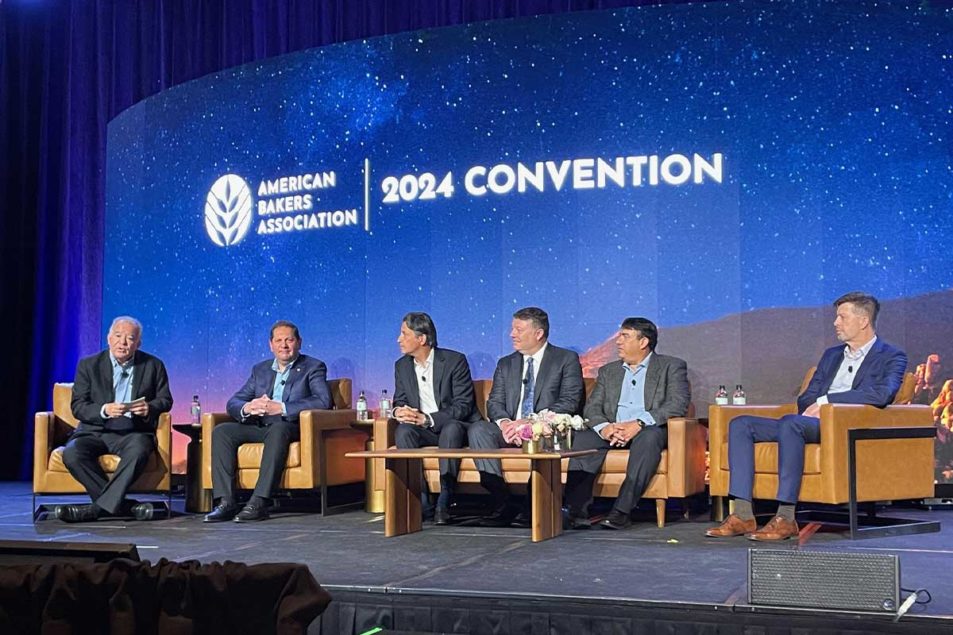[{"id":338,"link":"https:\/\/parkwayfoodgroup.com\/2025\/03\/05\/aba-marks-milestone-for-membership-growth\/","name":"aba-marks-milestone-for-membership-growth","thumbnail":{"url":"https:\/\/parkwayfoodgroup.com\/wp-content\/uploads\/2025\/03\/ABA-Lead_Studio-Romantic.jpg","alt":""},"title":"ABA marks milestone for membership growth","postMeta":{"wp_automatic_camp":["17"],"996e103b3106100b955c72c76d04f8d6":["ABA marks milestone for membership growth"],"original_link":["https:\/\/www.bakingbusiness.com\/articles\/63380-aba-marks-milestone-for-membership-growth"],"_thumbnail_id":["339"]},"author":{"name":"mmoao","link":"https:\/\/parkwayfoodgroup.com\/author\/mmoao\/"},"date":"Mar 5, 2025","dateGMT":"2025-03-05 15:05:19","modifiedDate":"2025-03-05 15:05:19","modifiedDateGMT":"2025-03-05 15:05:19","commentCount":"0","commentStatus":"open","categories":{"coma":"<a href=\"https:\/\/parkwayfoodgroup.com\/category\/uncategorized\/\" rel=\"category tag\">Uncategorized<\/a>","space":"<a href=\"https:\/\/parkwayfoodgroup.com\/category\/uncategorized\/\" rel=\"category tag\">Uncategorized<\/a>"},"taxonomies":{"post_tag":""},"readTime":{"min":1,"sec":41},"status":"publish","excerpt":""},{"id":336,"link":"https:\/\/parkwayfoodgroup.com\/2025\/02\/12\/aba-heads-to-orlando-for-its-biggest-convention-yet\/","name":"aba-heads-to-orlando-for-its-biggest-convention-yet","thumbnail":{"url":"https:\/\/parkwayfoodgroup.com\/wp-content\/uploads\/2025\/02\/0211-AdobeStock.jpg","alt":""},"title":"ABA heads to Orlando for its biggest convention yet","postMeta":{"wp_automatic_camp":["17"],"e6d416ec939f73fe3aa6f763f5459c8d":["ABA heads to Orlando for its biggest convention yet"],"original_link":["https:\/\/www.bakingbusiness.com\/articles\/63227-aba-heads-to-orlando-for-its-biggest-convention-yet"],"_thumbnail_id":["337"]},"author":{"name":"mmoao","link":"https:\/\/parkwayfoodgroup.com\/author\/mmoao\/"},"date":"Feb 12, 2025","dateGMT":"2025-02-12 03:46:34","modifiedDate":"2025-02-12 03:46:34","modifiedDateGMT":"2025-02-12 03:46:34","commentCount":"0","commentStatus":"open","categories":{"coma":"<a href=\"https:\/\/parkwayfoodgroup.com\/category\/uncategorized\/\" rel=\"category tag\">Uncategorized<\/a>","space":"<a href=\"https:\/\/parkwayfoodgroup.com\/category\/uncategorized\/\" rel=\"category tag\">Uncategorized<\/a>"},"taxonomies":{"post_tag":""},"readTime":{"min":2,"sec":11},"status":"publish","excerpt":""},{"id":334,"link":"https:\/\/parkwayfoodgroup.com\/2025\/02\/01\/groups-watch-closely-funding-freeze-developments\/","name":"groups-watch-closely-funding-freeze-developments","thumbnail":{"url":"https:\/\/parkwayfoodgroup.com\/wp-content\/uploads\/2025\/02\/Funding-Freeze-Lead_adst_Kzenon.png","alt":""},"title":"Groups watch closely funding freeze developments","postMeta":{"wp_automatic_camp":["17"],"fedfa72d8c39ffe887e25db4e2e7d35b":["Groups watch closely funding freeze developments"],"original_link":["https:\/\/www.bakingbusiness.com\/articles\/63156-groups-watch-closely-funding-freeze-developments"],"_thumbnail_id":["335"]},"author":{"name":"mmoao","link":"https:\/\/parkwayfoodgroup.com\/author\/mmoao\/"},"date":"Feb 1, 2025","dateGMT":"2025-02-01 00:11:41","modifiedDate":"2025-02-01 00:11:41","modifiedDateGMT":"2025-02-01 00:11:41","commentCount":"0","commentStatus":"open","categories":{"coma":"<a href=\"https:\/\/parkwayfoodgroup.com\/category\/uncategorized\/\" rel=\"category tag\">Uncategorized<\/a>","space":"<a href=\"https:\/\/parkwayfoodgroup.com\/category\/uncategorized\/\" rel=\"category tag\">Uncategorized<\/a>"},"taxonomies":{"post_tag":""},"readTime":{"min":2,"sec":46},"status":"publish","excerpt":""},{"id":332,"link":"https:\/\/parkwayfoodgroup.com\/2025\/01\/31\/flour-distributors-meeting-offers-ways-to-connect\/","name":"flour-distributors-meeting-offers-ways-to-connect","thumbnail":{"url":"https:\/\/parkwayfoodgroup.com\/wp-content\/uploads\/2025\/01\/NAFD-Lead.png","alt":""},"title":"Flour distributors meeting offers ways to connect","postMeta":{"wp_automatic_camp":["17"],"9711a8f87f3333f9a9bbf4e4bd75c3a9":["Flour distributors meeting offers ways to connect"],"original_link":["https:\/\/www.bakingbusiness.com\/articles\/63151-flour-distributors-meeting-offers-ways-to-connect"],"_thumbnail_id":["333"]},"author":{"name":"mmoao","link":"https:\/\/parkwayfoodgroup.com\/author\/mmoao\/"},"date":"Jan 31, 2025","dateGMT":"2025-01-31 00:09:09","modifiedDate":"2025-01-31 00:09:09","modifiedDateGMT":"2025-01-31 00:09:09","commentCount":"0","commentStatus":"open","categories":{"coma":"<a href=\"https:\/\/parkwayfoodgroup.com\/category\/uncategorized\/\" rel=\"category tag\">Uncategorized<\/a>","space":"<a href=\"https:\/\/parkwayfoodgroup.com\/category\/uncategorized\/\" rel=\"category tag\">Uncategorized<\/a>"},"taxonomies":{"post_tag":""},"readTime":{"min":3,"sec":29},"status":"publish","excerpt":""},{"id":330,"link":"https:\/\/parkwayfoodgroup.com\/2025\/01\/30\/aba-asb-unveil-new-online-baking-courses\/","name":"aba-asb-unveil-new-online-baking-courses","thumbnail":{"url":"https:\/\/parkwayfoodgroup.com\/wp-content\/uploads\/2025\/01\/ASB-ABA-Lead_adst_Miha-Creative.png","alt":""},"title":"ABA, ASB unveil new online baking courses","postMeta":{"wp_automatic_camp":["17"],"c7d08ad90d7a18174e5d8ed9d4ea2ffc":["ABA, ASB unveil new online baking courses"],"original_link":["https:\/\/www.bakingbusiness.com\/articles\/63133-aba-asb-unveil-new-online-baking-courses"],"_thumbnail_id":["331"]},"author":{"name":"mmoao","link":"https:\/\/parkwayfoodgroup.com\/author\/mmoao\/"},"date":"Jan 30, 2025","dateGMT":"2025-01-30 00:00:30","modifiedDate":"2025-01-30 00:00:30","modifiedDateGMT":"2025-01-30 00:00:30","commentCount":"0","commentStatus":"open","categories":{"coma":"<a href=\"https:\/\/parkwayfoodgroup.com\/category\/uncategorized\/\" rel=\"category tag\">Uncategorized<\/a>","space":"<a href=\"https:\/\/parkwayfoodgroup.com\/category\/uncategorized\/\" rel=\"category tag\">Uncategorized<\/a>"},"taxonomies":{"post_tag":""},"readTime":{"min":0,"sec":52},"status":"publish","excerpt":""},{"id":328,"link":"https:\/\/parkwayfoodgroup.com\/2025\/01\/28\/aba-hires-economist-for-workforce-insights-division\/","name":"aba-hires-economist-for-workforce-insights-division","thumbnail":{"url":"https:\/\/parkwayfoodgroup.com\/wp-content\/uploads\/2025\/01\/ABA-Economist-Lead_adst_Mary-Donovan.png","alt":""},"title":"ABA hires economist for workforce, insights division","postMeta":{"wp_automatic_camp":["17"],"e897d42e0fea0ee2e112d14c88e2e71d":["ABA hires economist for workforce, insights division"],"original_link":["https:\/\/www.bakingbusiness.com\/articles\/63124-aba-hires-economist-for-workforce-insights-division"],"_thumbnail_id":["329"]},"author":{"name":"mmoao","link":"https:\/\/parkwayfoodgroup.com\/author\/mmoao\/"},"date":"Jan 28, 2025","dateGMT":"2025-01-28 23:45:43","modifiedDate":"2025-01-28 23:45:43","modifiedDateGMT":"2025-01-28 23:45:43","commentCount":"0","commentStatus":"open","categories":{"coma":"<a href=\"https:\/\/parkwayfoodgroup.com\/category\/uncategorized\/\" rel=\"category tag\">Uncategorized<\/a>","space":"<a href=\"https:\/\/parkwayfoodgroup.com\/category\/uncategorized\/\" rel=\"category tag\">Uncategorized<\/a>"},"taxonomies":{"post_tag":""},"readTime":{"min":0,"sec":58},"status":"publish","excerpt":""},{"id":326,"link":"https:\/\/parkwayfoodgroup.com\/2025\/01\/24\/aba-to-honor-bakers-creating-better-tomorrow\/","name":"aba-to-honor-bakers-creating-better-tomorrow","thumbnail":{"url":"https:\/\/parkwayfoodgroup.com\/wp-content\/uploads\/2025\/01\/ABA-Lead_adst_Sergey-Ryzhov.png","alt":""},"title":"ABA to honor bakers creating \u2018Better Tomorrow\u2019","postMeta":{"wp_automatic_camp":["17"],"7e7117dd2c250e015cb9d02b033d5e06":["ABA to honor bakers creating \u2018Better Tomorrow\u2019"],"original_link":["https:\/\/www.bakingbusiness.com\/articles\/63118-aba-to-honor-bakers-creating-better-tomorrow"],"_thumbnail_id":["327"]},"author":{"name":"mmoao","link":"https:\/\/parkwayfoodgroup.com\/author\/mmoao\/"},"date":"Jan 24, 2025","dateGMT":"2025-01-24 21:53:22","modifiedDate":"2025-01-24 21:53:22","modifiedDateGMT":"2025-01-24 21:53:22","commentCount":"0","commentStatus":"open","categories":{"coma":"<a href=\"https:\/\/parkwayfoodgroup.com\/category\/uncategorized\/\" rel=\"category tag\">Uncategorized<\/a>","space":"<a href=\"https:\/\/parkwayfoodgroup.com\/category\/uncategorized\/\" rel=\"category tag\">Uncategorized<\/a>"},"taxonomies":{"post_tag":""},"readTime":{"min":1,"sec":57},"status":"publish","excerpt":""},{"id":324,"link":"https:\/\/parkwayfoodgroup.com\/2025\/01\/22\/aba-reveals-opening-keynote-speaker\/","name":"aba-reveals-opening-keynote-speaker","thumbnail":{"url":"https:\/\/parkwayfoodgroup.com\/wp-content\/uploads\/2025\/01\/ABA-Lead.png","alt":""},"title":"ABA reveals opening keynote speaker","postMeta":{"wp_automatic_camp":["17"],"d2fff5e879f4e78b5610374f75a803e1":["ABA reveals opening keynote speaker"],"original_link":["https:\/\/www.bakingbusiness.com\/articles\/63097-aba-reveals-opening-keynote-speaker"],"_thumbnail_id":["325"]},"author":{"name":"mmoao","link":"https:\/\/parkwayfoodgroup.com\/author\/mmoao\/"},"date":"Jan 22, 2025","dateGMT":"2025-01-22 21:07:21","modifiedDate":"2025-01-22 21:07:21","modifiedDateGMT":"2025-01-22 21:07:21","commentCount":"0","commentStatus":"open","categories":{"coma":"<a href=\"https:\/\/parkwayfoodgroup.com\/category\/uncategorized\/\" rel=\"category tag\">Uncategorized<\/a>","space":"<a href=\"https:\/\/parkwayfoodgroup.com\/category\/uncategorized\/\" rel=\"category tag\">Uncategorized<\/a>"},"taxonomies":{"post_tag":""},"readTime":{"min":0,"sec":27},"status":"publish","excerpt":""},{"id":322,"link":"https:\/\/parkwayfoodgroup.com\/2025\/01\/16\/aba-partners-with-us-marine-corps\/","name":"aba-partners-with-us-marine-corps","thumbnail":{"url":"https:\/\/parkwayfoodgroup.com\/wp-content\/uploads\/2025\/01\/ABA-Lead_adst_justasc.png","alt":""},"title":"ABA partners with US Marine Corps","postMeta":{"wp_automatic_camp":["17"],"edeb32cab18185738e95e122e24e48ed":["ABA partners with US Marine Corps"],"original_link":["https:\/\/www.bakingbusiness.com\/articles\/63077-aba-partners-with-us-marine-corps"],"_thumbnail_id":["323"]},"author":{"name":"mmoao","link":"https:\/\/parkwayfoodgroup.com\/author\/mmoao\/"},"date":"Jan 16, 2025","dateGMT":"2025-01-16 19:34:31","modifiedDate":"2025-01-16 19:34:31","modifiedDateGMT":"2025-01-16 19:34:31","commentCount":"0","commentStatus":"open","categories":{"coma":"<a href=\"https:\/\/parkwayfoodgroup.com\/category\/uncategorized\/\" rel=\"category tag\">Uncategorized<\/a>","space":"<a href=\"https:\/\/parkwayfoodgroup.com\/category\/uncategorized\/\" rel=\"category tag\">Uncategorized<\/a>"},"taxonomies":{"post_tag":""},"readTime":{"min":0,"sec":47},"status":"publish","excerpt":""},{"id":320,"link":"https:\/\/parkwayfoodgroup.com\/2024\/12\/25\/guiding-and-creating-industry-leaders-for-the-future\/","name":"guiding-and-creating-industry-leaders-for-the-future","thumbnail":{"url":"https:\/\/parkwayfoodgroup.com\/wp-content\/uploads\/2024\/12\/Baking-Industry-Leadership-Lead.jpg","alt":""},"title":"Guiding and creating industry leaders for the future","postMeta":{"wp_automatic_camp":["17"],"46ecf682abf3f91f7d363668a28c9e4d":["Guiding and creating industry leaders for the future"],"original_link":["https:\/\/www.bakingbusiness.com\/articles\/62893-guiding-and-creating-industry-leaders-for-the-future"],"_thumbnail_id":["321"]},"author":{"name":"mmoao","link":"https:\/\/parkwayfoodgroup.com\/author\/mmoao\/"},"date":"Dec 25, 2024","dateGMT":"2024-12-25 12:00:56","modifiedDate":"2024-12-25 12:00:56","modifiedDateGMT":"2024-12-25 12:00:56","commentCount":"0","commentStatus":"open","categories":{"coma":"<a href=\"https:\/\/parkwayfoodgroup.com\/category\/uncategorized\/\" rel=\"category tag\">Uncategorized<\/a>","space":"<a href=\"https:\/\/parkwayfoodgroup.com\/category\/uncategorized\/\" rel=\"category tag\">Uncategorized<\/a>"},"taxonomies":{"post_tag":""},"readTime":{"min":7,"sec":28},"status":"publish","excerpt":""},{"id":318,"link":"https:\/\/parkwayfoodgroup.com\/2024\/12\/21\/dgac-report-does-not-recommend-change-to-grain-servings\/","name":"dgac-report-does-not-recommend-change-to-grain-servings","thumbnail":{"url":"https:\/\/parkwayfoodgroup.com\/wp-content\/uploads\/2024\/12\/dietary-guidelines-grains-lead-ZHANE-LUK.jpg","alt":""},"title":"DGAC report does not recommend change to grain servings","postMeta":{"wp_automatic_camp":["17"],"8ae6f27c63ecf52d3ae6a59f1ba281c6":["DGAC report does not recommend change to grain servings"],"original_link":["https:\/\/www.bakingbusiness.com\/articles\/62945-dgac-report-does-not-recommend-change-to-grain-servings"],"_thumbnail_id":["319"]},"author":{"name":"mmoao","link":"https:\/\/parkwayfoodgroup.com\/author\/mmoao\/"},"date":"Dec 21, 2024","dateGMT":"2024-12-21 09:59:20","modifiedDate":"2024-12-21 09:59:20","modifiedDateGMT":"2024-12-21 09:59:20","commentCount":"0","commentStatus":"open","categories":{"coma":"<a href=\"https:\/\/parkwayfoodgroup.com\/category\/uncategorized\/\" rel=\"category tag\">Uncategorized<\/a>","space":"<a href=\"https:\/\/parkwayfoodgroup.com\/category\/uncategorized\/\" rel=\"category tag\">Uncategorized<\/a>"},"taxonomies":{"post_tag":""},"readTime":{"min":5,"sec":41},"status":"publish","excerpt":""},{"id":316,"link":"https:\/\/parkwayfoodgroup.com\/2024\/12\/17\/aba-expands-team-with-new-hires\/","name":"aba-expands-team-with-new-hires","thumbnail":{"url":"https:\/\/parkwayfoodgroup.com\/wp-content\/uploads\/2024\/12\/ABA-Personnel-Lead-FINAL.jpg","alt":""},"title":"ABA expands team with new hires","postMeta":{"wp_automatic_camp":["17"],"56b7343113a99cddbf14ca33ce19d3dc":["ABA expands team with new hires"],"original_link":["https:\/\/www.bakingbusiness.com\/articles\/62921-aba-expands-team-with-new-hires"],"_thumbnail_id":["317"]},"author":{"name":"mmoao","link":"https:\/\/parkwayfoodgroup.com\/author\/mmoao\/"},"date":"Dec 17, 2024","dateGMT":"2024-12-17 14:49:42","modifiedDate":"2024-12-17 14:49:42","modifiedDateGMT":"2024-12-17 14:49:42","commentCount":"0","commentStatus":"open","categories":{"coma":"<a href=\"https:\/\/parkwayfoodgroup.com\/category\/uncategorized\/\" rel=\"category tag\">Uncategorized<\/a>","space":"<a href=\"https:\/\/parkwayfoodgroup.com\/category\/uncategorized\/\" rel=\"category tag\">Uncategorized<\/a>"},"taxonomies":{"post_tag":""},"readTime":{"min":2,"sec":24},"status":"publish","excerpt":""}]



Leave a Reply